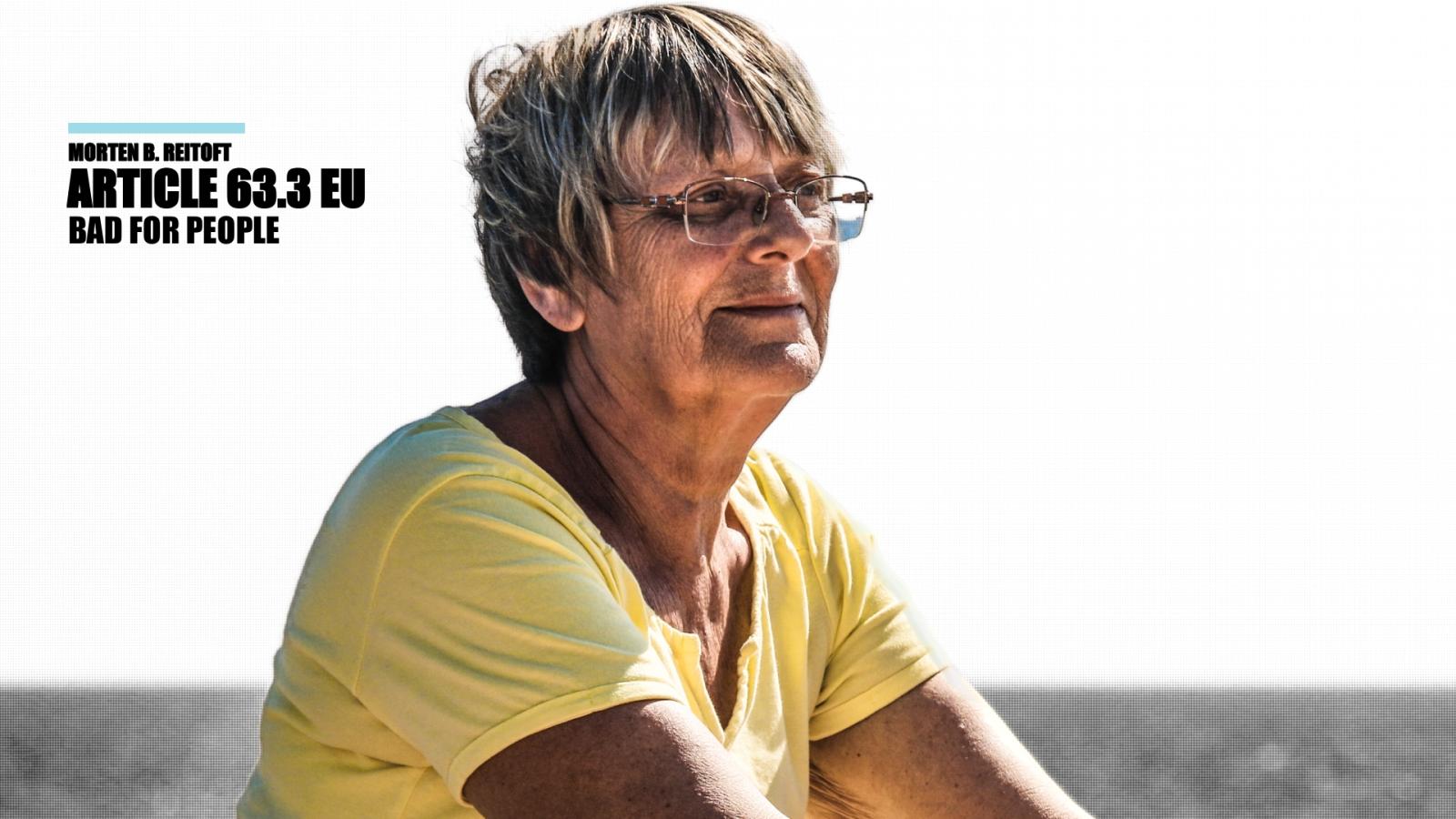
By Editor Morten B. Reitoft
My mom was born in 1945 and has always been active as a nurse. Before she retired, she managed an elderly home and more than 400 employees. She used MS Word, Excel, and other software at a relatively high level. My mom is still active and is a volunteer in her neighborhood, helping other people as much as she can. My mom is in many ways well functioning; however, her memory, particularly her ability to use IT, saturates. My mom also has migraines and, therefore, takes different types of medication. Imagining her using a QR code to read the inlays of the medicine is a joke. My siblings and I already help with almost everything that relates to IT - from banking to official emails and everything in between. Do she and other people I know use the inlays a lot? Probably not, but if you are old, sick, or in a situation where you need rapid answers to the effects of your medicine, using electronic means is not OK.
My wife is a nurse. She is a specialist in Chronic Obstructive Pulmonary Disease. When people have this disease, they take medicine, use different medical devices, and generally speaking have limited life quality and maybe even less a surplus in life to struggle to find answers using QR codes and computers.
When the European Union suggests making inlays electronic instead of on paper, this is a disgrace to the people who need this information - but it's also a disgrace to the general public. Everybody can get sick, and everybody can be in positions where access to information can't be dependent on whether you have a phone or a computer - or even an active connection, to get information that can be vital. It's also a disgrace as it serves no purpose. The cost of producing the inlay is so marginal that this will not influence consumer pricing, so who is the EU supporting with this law? Nobody but the pharma industry.
To have information available on both paper and electronically is already a fact, so my recommendation is status quo. We don't need to change anything here. The inlays have a nominal cost and zero damage to the consumer (on the contrary), and the alternative is worse.
We will ask 'Ældresagen,' 'Dansk Sygeplejeråd,' and the doctor's organization 'Yngre læger,' in Denmark to raise their voice against the EU on this matter, and I recommend that you all do the same in your countries!
--
Fri May 17th
EMT International als A...
In Halle 6, Stand A42, präsentiert EMT ihre modulare Chameleon Finishing-Linie, darunter auch die DP22 PRO Dynamic Perf and Punch
Fri January 26th
Verpackungsspezialist s...
Trotz Insolvenz aussichtsreiche Chancen
Sun November 7th
Das Glück der Eingebung...
Dem bahnbrechenden Erfinder Senefelder zum 250. Geburtstag
Fri October 15th
Viele Belege aus Wes...
Was die Zeitungen sagen-Woche des 11. Oktober-Von Nessan Cleary
Fri October 8th
Australien spürt noc...
Was die Zeitungen sagen-Woche des 4. Oktober-Von Nessan Cleary
Fri October 1st
Die Berichterstattun...
Was Die Papiere Sagen-Woche des 27. September-Von Nessan Cleary
Fri September 24th
Weitere Anzeichen fü...
Was Die Papiere Sagen-Woche des 20. September-Von Nessan Cleary
Tue September 21st
Die maximale Perform...
INKISH deckt die Veranstaltung ab und kann nicht warten, um die Branche zu treffen ist diese vielleicht erste physische Veranstaltung in ...
Fri September 17th
Es gibt gute Nachric...
Was Die Papiere Sagen-Woche 13. September-Von Nessan Cleary
Sat September 11th
Fragen über den Zust...
Was Die Papiere Sagen-Woche des 6. September-Von Nessan Cleary
Abonnieren
Erhalten Sie eine Benachrichtigung, um unseren kostenfreien Newsletter zu abonnieren
Einloggen
Neuer Nutzer? Anmelden
Passwort zurücksetzen
Anmelden
Bestehender Nutzer? Hier einloggen
Hier einloggen
Passwort zurücksetzen
Bitte geben Sie Ihre registrierte E-Mail-Adresse ein. Sie erhalten einen Link zum Zurücksetzen Ihres Passworts per E-Mail.
Neuer Nutzer? Anmelden